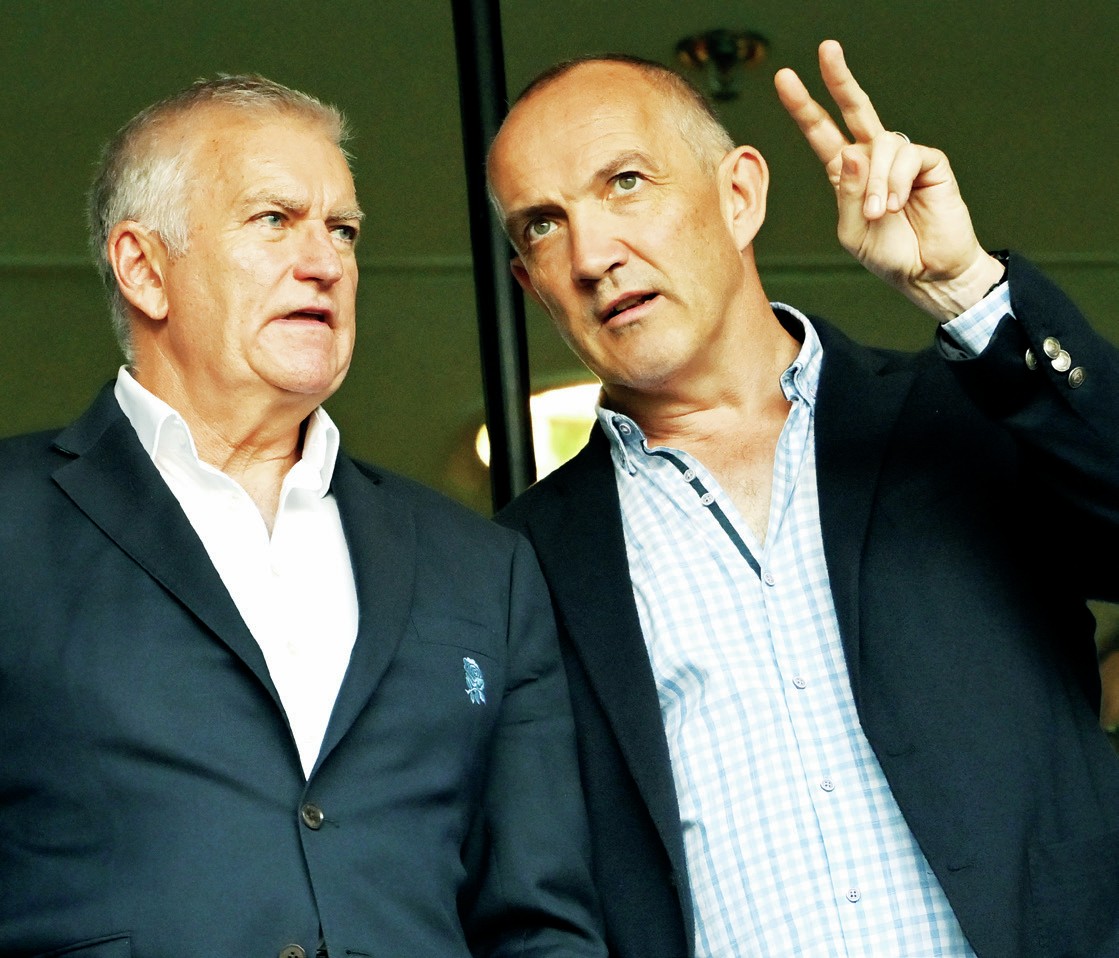Talented players will still miss out

With the start of a new year, it's the beginning of a new RFU and Premiership partnership which will give England the chance to once again be the world leaders in the sport, or so we have been told. RFU rep Conor O'Shea and the Premiership DoRs are keen to get the new deal signed off even though there are still a number of issues that really don't make sense.
The new deal is supposed to give Steve Borthwick more control over a group of chosen players who will be offered hybrid contracts. I hate to be the one to say it, but wasn't that the whole idea of the Professional Game Agreement in the first place – paying the Premiership clubs for the release of players outside World Rugby's international windows – to give the England coach extra time with his players so as to raise their standard of fitness etc? If the previous coaches failed to use that extra time in the correct way, what makes the RFU think that this new agreement will be any different?
Even the idea of individual development plans (IDP) for each player is a thing from the past. After the first World Cup in ‘87, the RFU had Loughborough College involved with fitness coaching of the England squad which dramatically changed the way players were coached in fitness and match preparation. We were expected to do gym and fitness training four days a week while also continuing our club training and were given an IDP – I've still got mine – to strengthen areas missed in standard training.
So, it's no wonder the DoRs are chomping at the bit to get the deal done as this is very much back to the future with clubs reaping a financial benefit while adding nothing to the game. The hybrid contract won't help the finances of the clubs and may in fact damage them as it's likely that club wages for hybrid players will stay the same or increase because of their ‘special status'. Then there is the question of what about the other squad members if only half are being offered hybrid contracts? Will they continue with match fees which would, if kept at the present rate, be more than the contracted players, unless the contracted players are also getting match fees on top of their contract.
Then there is the cutting of Premiership clubs' senior squads to 35 players supported by 12 or so Academy players. I assume this means post academy players as many would still be under 19 and not allowed to play in the senior game as a forward.
By slimming down, it effectively means making a number of players redundant unless the RFU is expecting the Championship to employ them, in which case a number of Championship players will have to be made redundant to create space.
I am surprised that the RPA seems to be silent on the potential of a number of its members losing their jobs as a result of the new deal. If that is the plan then the RFU will have to reinstate the funding to the Championship and actually increase it to a similar level as the Premiership and even then it would rely on players to at least being prepared to take a cut in salary.
The reshuffle of the Championship comes with the unspoken threat of dropping clubs who don't accept the poisoned chalice being offered while allowing clubs, Wasps, Worcester, London Irish etc. the chance to rejoin the league in the Championship. This despite not playing any games since going bust, while historically forcing clubs in their position, Richmond, London Scottish, Rosslyn Park, etc. to start at the very bottom of the league.
O'Shea's comment that ‘talent ID is not about spotting talent, it's about giving talent the opportunity to be seen and that is where English rugby has failed miserably' is 100 per cent right, but this deal won't change that. What started the decline in the national team's results was the removal of the established pathways, county rugby, and the addition of divisional (regional) rugby as a further step as a level of rugby between club and country. Those two levels above club rugby made a real difference to the England game during the early 90s where the team won three grand slams in four years, something that has not been achieved by any other nation since.
Unfortunately, the club game has too many non-England qualified players who can make other players look better than they are, making it difficult to sort the ‘wheat from the chaff ' and that's where the county and divisional rugby made the difference. By taking players out of the comfort zone of their club and mixing them with different players you get to see where the talent is or isn't, thereby making selection far easier.
With county teams able and willing to pick players from all levels of the game they provided an opportunity for missed talents to be rediscovered and with the extra tier of divisional picking the best county and club players it gave an England coach the unique ability to watch the best players from each region playing against each other.
With many regions including Yorkshire, the region with the most rugby clubs, having no representation in the Premiership, so therefore its players have no chance at all of selection for the national squad. Talented players will continue to be missed, despite the new PGP deal.